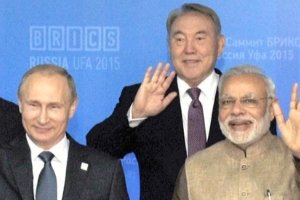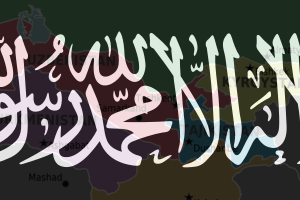Beijing waivers on Afghanistan security commitment
By Richard Weitz (09/02/2015 issue of the CACI Analyst)
That China is as worried as Afghanistan’s other neighbors regarding how to sustain security in that country is evident in how Beijing has set aside some long-standing “red lines” concerning that country. In recent months, Chinese diplomats have more actively tried to promote reconciliation between the Afghan government and the Taliban as well as between Afghanistan and Pakistan. China has also more openly provided security assistance to the Kabul government. But Beijing has yet to take a decisive step for Afghan peace despite the critical issues involved.
Was the SCO summit in Ufa a breakthrough?
By Stephen Blank (19/08/2015 issue of the CACI Analyst)
The annual summit of the Shanghai Cooperation Organization took place on July 9-10 in Ufa, and ratified the expansion of membership to include India and Pakistan, and Iran may join in the future. Thus the SCO is well on the way to becoming a venue for the most powerful Inner Asian states to work together and discuss policy issues affecting Central Asia and beyond. But new membership is not likely to make this organization any more effective as a regional security provider. In fact, all the disputes among the major members, including India and Pakistan, might be imported into the SCO’s structure and serve as a brake on the expansion of its capabilities.

China pushes Pakistan to fight terrorism selectively
By Sudha Ramachandran (05/08/2015 issue of the CACI Analyst)
While China prods the Pakistani government to crack down on Uighur militants and their bases in North Waziristan, it ignores and even appeases Islamabad’s support of anti-India terrorist groups and has rushed to Pakistan’s defense in international forums. While this may endear Beijing to the Pakistani establishment, a selective approach to terrorism is not productive in the long run as groups like the East Turkistan Islamic Movement are drawing strength from Pakistan’s Inter-Services Intelligence’s terrorism network.

Iran and the SCO: new opportunities, new challenges
By Richard Weitz (05/08/2015 issue of the CACI Analyst)
Now that the UN Security Council has blessed the Iranian nuclear deal, Tehran’s chances of becoming a full member of the Shanghai Cooperation Organization (SCO) in coming years have improved, following a decade of rejection. Iranian leaders have long wanted to join the SCO to gain diplomatic, economic, and security advantages. Nonetheless, Iran will need to overcome several major obstacles on its path to full membership, even if nothing goes amiss with the implementation of its nuclear deal.
Islamic State in Central Asia: threat or opportunity
By Charlie Smith (08/07/2015 issue of the CACI Analyst)
Central Asia is a key region that many believe has fallen into the crosshairs of the terrorist group calling itself the Islamic State (ISIS). Local governments are gravely concerned about returning fighters and possible ISIS infiltration in the region, and foreign powers, especially neighboring Russia and China, have expressed their deep concerns. This grim picture, however, obscures a more complex, and perhaps more accurate, story. Might the specter of ISIS have less to do with its on-the-ground ability to destabilize the region and more to do with the geopolitical concerns of those who are stating these threats?








